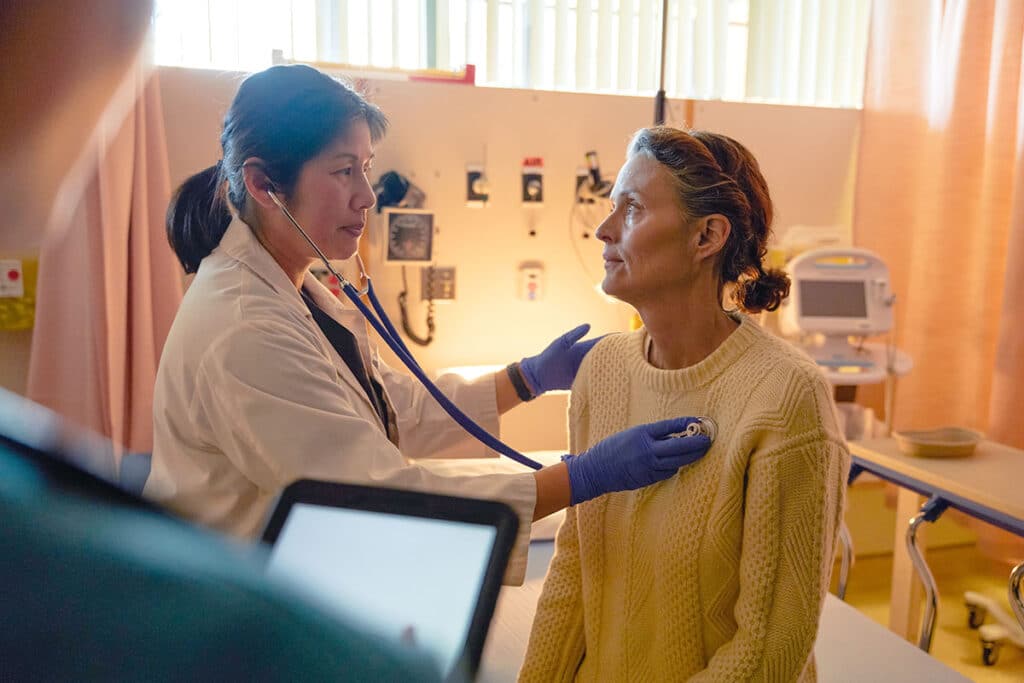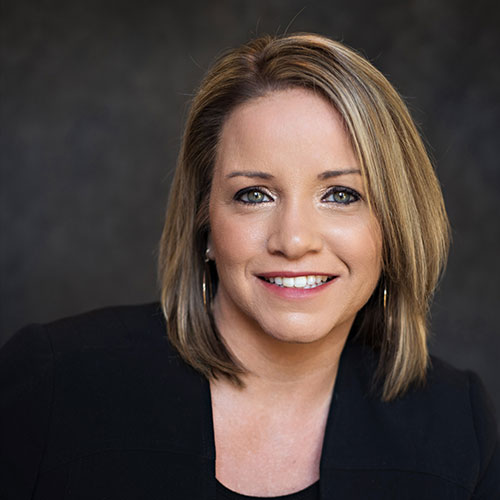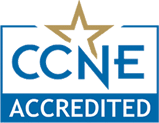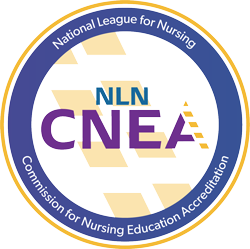Nursing



8-week terms allow for start dates throughout the year
Complete the DNP program in as few as 20 months at the Accelerated program pace
Complete 30 credits to earn your Doctor of Nursing Practice degree
Emphasis on leadership within large healthcare organizations
Specialized training on strategic leadership and project management in complex healthcare settings
Research project allowing for on-site application, along with a team to help with site placement
Curriculum aligning with the latest recommendations of the American Association of Colleges of Nursing (AACN)

Our no-waitlist DNP program can be completed in as little as 20 months with an AACN-aligned curriculum that helps you build on your clinical experience, and learn about strategic leadership and project management in complex healthcare environments. With a focus on promoting safety and quality in healthcare, you will learn to develop innovative strategies for creating change. You will also explore the influence of policy and ethical decision-making in healthcare delivery.
The program’s required DNP project teaches students how to analyze problems, implement solutions, and be champions of progress. The project requires 1,000 post-baccalaureate practice hours completed under the guidance of a site mentor or healthcare leader.
Balance your career and education with online coursework and clinical placement support, empowering you to complete your DNP degree around your schedule.
Distance Education/Online
30 Credits
20 Months
5 Trimesters
To achieve the graduation requirement of 30 credits, all students must complete 30 credits of core and track courses. Core courses provide students with the specific discipline experience required for the degree. All students will complete at least 26 core course credits as detailed below. The remaining 4 credits are based on the program specialty the student is enrolled in. The currently available tracks are:
Core courses to be completed by all students (26 credits)
| Course Number | Course Name | Total Credit Hours |
|---|---|---|
| Number | Name | Hours |
| DNPC 700 | Advanced Nursing Practice Inquiry | 3 |
| DNPC 705 | Organizational & Systems Leadership | 2 |
| DNPC 710 | Informatics and Healthcare Technologies | 1 |
| DNPC 715 | Policy Development and Implementation | 2 |
| DNPC 720 | Translating Scholarship to Practice | 3 |
| DNPC 725 | Application of Applied Statistics | 3 |
| DNPC 780C | DNP Project I: Project Design & Development | 3 |
| DNPC 785C | DNP Project II: Project Implementation | 3 |
| DNPC 790C | DNP Project III: Project Analysis | 3 |
| DNPC 795C | DNP Project IV: Project Evaluation | 3 |
| Total Credit Hours: | 26 | |
Executive Leadership Track
Track courses to be completed in the Executive Track (4 credits)
| Course Number | Course Name | Total Credit Hours |
|---|---|---|
| Number | Name | Hours |
| DNPX 750 | Advanced Executive Leadership I | 2 |
| DNPX 755 | Advanced Executive Leadership II | 2 |
| Total Credit Hours: | 4 | |
We know school is a substantial commitment. At WCU, we want to equip you with all the information you need to make the right decision for your future.
Our goal is to give you a clear understanding of Doctor of Nursing Practice online tuition costs so you can be well-informed as you navigate the application and enrollment process. To assist you in your decision, we provide a breakdown below of the online DNP program costs at West Coast University.
We offer several DNP financial aid options — including scholarships, grants, and loan access — to help support you through your studies.
For more information about your financial support options, visit our financial aid page.
Estimated Cost of Attendance is comprised of both direct costs and indirect costs, as outlined in the charts below. The purpose of the Cost of Attendance (COA) is to provide students and families with an estimated cost to attend West Coast University. The COA includes both direct and indirect cost estimates and are categorized as follows: (1) Direct costs are paid directly to West Coast University and are shown separately for each program; (2) Indirect costs are not paid to West Coast University and are estimates students may use to budget expenses they may incur while attending school. While actual indirect costs may vary, West Coast University estimates these amounts based on the number of months in an academic year and whether students will live with parents or off campus.
Direct Costs
| Degree Type | Doctorate (Effective Prior to Fall I 2026) | Doctorate (Effective Starting to Fall I 2026) |
| Total Program Credits | 30 | 30 |
| Program Length (Full-Time) | 5 trimesters | 5 trimesters |
| Tuition Cost (per credit) | $1,074 | $1,106 |
| Total Tuition Cost | $32,220 | $33,180 |
| STRF1 | $0 | $0 |
| Technology Fee ($500 per semester)2 | $2,500 | $2,500 |
| Estimated for Program Supply Fees3 | $400 | $400 |
| Estimated Total Program Costs (California residents) | $35,120 | $36,080 |
| Estimated Total Program Costs (non-California residents) | $35,120 | $36,080 |
Indirect Costs
| 8 Month Academic Year4 | ||||
| Prior to Fall 1 2026 | Starting Fall 1 2026 | |||
| with parents | off campus | with parents | off campus | |
| Federal Student Loan Fees | $220 | $220 | $220 | $220 |
| Living Expenses (Food & Housing) | $2,616 | $8,728 | $2,904 | $9,072 |
| Transportation | $1,776 | $1,776 | $1,920 | $1,920 |
| Miscellaneous Personal Expenses | $5,656 | $5,656 | $6,448 | $6,448 |
| Total | $10,268 | $16,380 | $11,492 | $17,660 |
Effective April 1, 2024, the Student Tuition Recovery Fund (STRF) assessment rate will be zero dollars and zero cents ($0.00) per one thousand dollars ($1,000) of institutional charges.
1 Effective April 1, 2024, the Student Tuition Recovery Fund (STRF) assessment rate will be zero dollars and zero cents ($0.00) per one thousand dollars ($1,000) of institutional charges. The State of California established the Student Tuition Recovery Fund (STRF) to relieve or mitigate economic loss suffered by a student in an educational program at a qualifying institution, who is or was a California resident while enrolled, or was enrolled in a residency program, if the student enrolled in the institution, prepaid tuition, and suffered an economic loss. Unless relieved of the obligation to do so, you must pay the state-imposed assessment for the STRF, or it must be paid on your behalf, if you are a student in an educational program, who is a California resident, or are enrolled in a residency program, and prepay all or part of your tuition.You are not eligible for protection from the STRF and you are not required to pay the STRF assessment, if you are not a California resident, or are not enrolled in a residency program.
It is important that you keep copies of your enrollment agreement, financial aid documents, receipts, or any other information that documents the amount paid to the school. Questions regarding the STRF may be directed to the Bureau for Private Postsecondary Education, 1747 N. Market Blvd. Ste 225 Sacramento, CA 95834, (916) 431-6959 or (888) 370-7589.
To be eligible for STRF, you must be a California resident or enrolled in a residency program, prepaid tuition, paid or deemed to have paid the STRF assessment, and suffered an economic loss as a result of any of the following:
To qualify for STRF reimbursement, the application must be received within four (4) years from the date of the action or event that made the student eligible for recovery from STRF.
A student whose loan is revived by a loan holder or debt collector after a period of noncollection may, at any time, file a written application for recovery from STRF for the debt that would have otherwise been eligible for recovery. If it has been more than four (4) years since the action or event that made the student eligible, the student must have filed a written application for recovery within the original four (4) year period, unless the period has been extended by another act of law.
However, no claim can be paid to any student without a social security number or a taxpayer identification number.
2Technology Fee includes student technical support, Office 365, blended and online course delivery/learning management system, mobile app, student portal technology and access, and required electronic course materials/software.
3 Program supplies include WCU identification card and background check.
4 The purpose of the Cost of Attendance (COA) is to provide students and families with an estimated cost to attend West Coast University. The COA includes both direct and indirect cost estimates. Direct costs are paid directly to West Coast University and are shown separately for each program. Indirect costs are not paid to West Coast University and are estimates students may use to budget expenses they may incur while attending school. While actual indirect costs may vary, West Coast University estimates these amounts based on the number of months in an academic year and whether students will live with parents or off campus.
Note 1: Students who wish to take Challenge Exams will be subject to a fee of $100 for each Challenge exam. Please see the campus Bursar Office for a full price listing.
Note 2: Course Audits – If a course(s) is being audited. Credits for these course(s) will be included for the student’s schedule status for courses taken by semester. Audit course fees will be incurred by program, based on these schedule statuses shown above.
Note 3: Applicants are conditionally accepted to the Occupational Therapy Doctorate program until a non-refundable $250.00 good faith payment for a Seat Deposit has been submitted. The Seat Deposit is not a separate charge but will be credited to the program costs should the student not cancel their enrollment. The University will retain the full amount of this deposit should the student cancel their enrollment at any time, for any reason. Seat Deposits may be paid by credit card, debit card, money order, or cashier’s check made payable to West Coast University. A Seat Deposit will be collected for each enrollment and cannot be applied to or carried over to enrollments for other programs or start terms. At their discretion, the Executive Director may refund the full Seat Deposit for unusual or unexpected circumstances that would warrant a full refund.
Applicants for the Doctor of Nursing Practice must meet the following admissions requirements:
West Coast University requires proof of English Proficiency. Applicants for whom English is not their primary language should refer to the University Admissions Requirements section of the catalog.
For additional requirements, please visit our online catalog.
The DNP program accepts students during the Spring I, Summer I, and Fall I terms, with the calendar year typically consisting of six terms. For more information about our term start and completion dates, view the Academic Calendar.
WCU graduates are given tools to influence healthcare policy at institutional, state, and/or federal levels. They are trained to lead, whether that means managing interprofessional teams or helping guide organizational decision-making.
Below are the program learning outcomes for our online DNP program.

WCU’s Career Services department provides DNP students and graduates with ongoing assistance through professional and career development guidance and workshops.1 Whether you need help building a stronger resume, narrowing down your job search, or preparing for an interview, you have a team that is ready to support you.
We will also provide you with other forms of support while you are a student at WCU, including clinical placement assistance as well as your own assigned Student Success advisors, admissions and financial aid advisors, no-cost tutoring, one-on-one faculty mentorship, and more.
Completing your clinical practicum is an exciting part of your degree or post-master’s certificate program, but it can also feel overwhelming for many students. Fortunately, our Clinical Placements team is here to support you every step of the way.
We help you find a preceptor and clinical site in your local area, as well as provide advice along the way so you can enhance your practice experience. Receiving guidance is easy – all you have to do is jump on a coaching call with your assigned coordinator of clinical relations.
WCU has partnerships and connections with various healthcare providers, so we are well-equipped to help our students with their placement needs.

Dr. Sandvig is an established and purposeful academic leader and nursing professional with over 10 years of experience in educational leadership, accreditation, and clinical practice. As the Dean of Post-Licensure Nursing at West Coast University, she is committed to advancing the quality and standards of nursing education through a student-centered approach that values prior learning, professional experience, and the recognition of students as adult learners.
In her role as the former Associate Dean of Accreditation and Licensure for the College of Nursing, Dr. Sandvig led two multi-campus, multi-program accreditation visits, successfully achieving both initial and ongoing accreditation. Her leadership ensured the compliance, excellence, and integrity of both curriculum and faculty, supporting the mission of West Coast University to foster a culture of lifelong learning among nursing professionals.
Dr. Sandvig previously served as the Director of an RN to BSN program, where she led efforts that resulted in significant enrollment growth. She also has a clinical background in critical care, which informs her approach to nursing education and leadership.
With a strong background in adult education, staff development, and higher education, Dr. Sandvig excels in designing effective and engaging learning experiences. She is passionate about maintaining professionalism, fostering relationships, and empowering the next generation of nursing leaders who will positively impact diverse communities.
No, there is no waitlist to start the online DNP program.
WCU’s Doctor of Nursing Practice online program makes it possible to earn your doctorate degree in nursing in as few as 20 months.
WCU’s Doctor of Nursing Practice program consists of online coursework and on-site experiential learning. Students are encouraged to work with a DNP-prepared nurse as a preceptor to guide the research process.
The WCU DNP program helps prepare graduates for a terminal degree focused on clinical practice leadership and does not prepare advanced practice registered nurses (APRNs) for roles as nurse practitioners, clinical nurse specialists, certified nurse midwives, or certified nurse anesthetists.
Our DNP program is designed to be flexible. Even though we set deadlines for assignments, you do have flexibility for when you will complete your work, whether that’s in the middle of the day or the middle of the night, weekdays or weekends. Online coursework gives you the freedom to complete your DNP degree around your schedule!
WCU can evaluate your previous experience for acceptance. Transfer of clinical hours for prospective students is on a case-by-case basis. Your admissions advisor can help evaluate how many of graduate clinical credits qualify for transfer, if any.
Our DNP program helps you build the skills needed to lead healthcare teams, manage projects, and promote safer and more efficient healthcare delivery at the macro level. You’ll benefit from a combination of both didactic online learning and on-site experiential learning, which you will complete through a translational DNP research project carried out at a partner practice site.
A Doctor of Nursing Practice (DNP) is the most advanced academic degree that can be earned in the nursing field while a nurse practitioner (NP) is an occupation title. To become a nurse practitioner, you must be licensed as a registered nurse (RN), have a bachelor’s degree, complete an NP-focused master’s program or doctoral nursing program, and pass a national nurse practitioner board certification exam.2
The DNP degree at WCU degree does not prepare you for nurse practitioner certification. Rather, many prospective and existing nurse practitioners pursue DNP degrees in order to advance their education, develop leadership skills, and improve on their service to patients in their communities.
We have updated our program to reflect the latest recommendations for best practices in DNP education by the American Association of Colleges of Nursing (AACN). We incorporated AACN’s recommendations into our program curriculum, adding instruction and coursework related to subject matter such as policy and legislation issues, finance and business, social media training, and more.
Financial aid, scholarships, and grants are available for those who qualify. A few of the grants and scholarships that are available at WCU include the Alumni Pathway Grant (covering as much as 20% of tuition), the WCU Health Services Grant (covering as much as 10% of tuition), and the WCU Performance Scholarship (covering as much as 15% of tuition). For more information and eligibility criteria, please see the online division scholarships and grants page of our catalog.

The baccalaureate degree program in nursing, master’s degree program in nursing, Doctor of Nursing Practice program, and post-graduate APRN certificate program at West Coast University are accredited by the Commission on Collegiate Nursing Education 655 K Street, Suite 750, Washington DC 20001, (202) 877-6791 (www.ccneaccreditation.org).

The West Coast University Doctor of Nursing Practice Program (System) holds initial accreditation from the National League for Nursing Commission for Nursing Education Accreditation (NLN CNEA), located at 2600 Virginia Avenue, NW, Washington, DC 20037. 202-909-2487.
1 WCU provides career guidance and assistance but cannot guarantee employment.
2 American Association of Nurse Practitioners, “The Path to Becoming a Nurse Practitioner (NP)”
Financial aid and scholarships are available for those who qualify.
WCU Distance education programs are delivered out of the California and Texas campuses and may not be available to residents in all states.
Practice Experience is required in order to graduate from the RN to BSN, RN to MSN, MSN, DNP degree and Post-Master’s certificate programs.